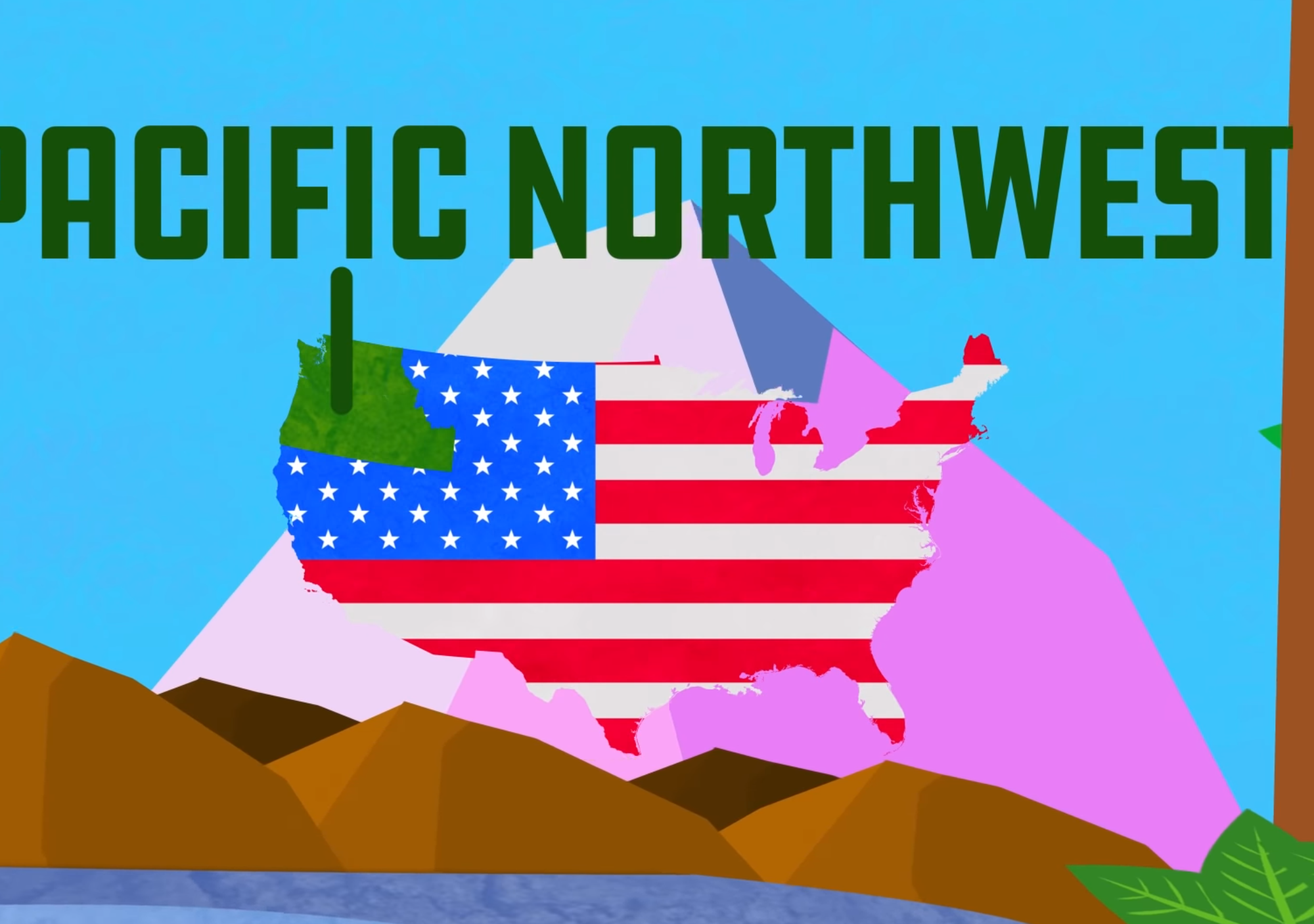One of the group of amazing climate scientist-communicators Katherine Hayhoe, who is both a prolific presenter on all topics climate, along with being a force on Twitter (@KHayhoe) explaining and defending climate change science. Her ongoing YouTube series ‘Global Weirding‘ allows an accessible and fun (yet deeply informative) look at the topic from many angles . New episodes every other Wednesday, and the most recent to drop gives some specifics on Pacific Northwest, Alaska, and & The Islands, exploring the critical regional issues – following the regional chapters of the NCA4.
Pacific Northwest, Alaska & The Islands | Global Weirding
The year 2015 is mentioned as a case study exhibiting the conditions that are most likely to occur due to climate change. This included more precipitation as rain versus snow, and rapid snowmelt in spring, which led to low snowpack, and subsequent water scarcity and wildfires, including the Okanogan Fire in Washington and many larger fires in Oregon. It also means the increased risks to pests which can impact forests, and water temperature issues that impact fish, along with algal blooms that impact shellfish, and even more impacts due to ocean acidification.
Other years will be punctuated by El Nino effects, along with atmospheric rivers, which related to wet winters. As Hayhoe mentions, these atmospheric rivers are “…long, narrow streams of water, that are really like rivers in the sky. They transport vast amounts of water thousands of miles across the Pacific to land.” These make up about 30-40% of annual West Coast precipitation, and are expected to get worse with warmer temperatures.
The video also discusses areas in this chapter of the NCA4, including Alaska and Islands. The Arctic is threatened due to warming 2-3 times faster than other areas, and feedback loops are making this accelerate, due to melting ice exposing more water to sun, where it heats up and creates even warmer temperatures. There’s also issues with permafrost melting, which is releasing methane and carbon. While there may be some benefits of warming temperatures, areas like this get out of balance, including risks to infrastructure and buildings, and impacts to indigenous people and wildlife. Islands have different vulnerabilities, which have issues related to coastal impacts of sea level rise and storm surges are major dangers. Hurricanes are getting bigger and are lingering, which is creating devastation in areas of the Caribbean. There are also issues with potential contamination of freshwater due to saltwater intrusion, and negative economics to fishing and tourism of sensitive coral reefs will be significant as well. The costs to adapt to these changes in both Arctic and Islands is going to be significant.
“We care about a changing climate because it’s loading the dice against us. It’s taking many of our naturally occurring risks and our pre-existing vulnerabilities and its making them worse, in ways that effect us directly, here and now.”
The takeaway here is that every region will be impacted in different ways by climate change, and the Pacific Northwest is no exception.
Also, it is, like many other regions, the story of vulnerable communities, such as those already at risk, and those dependent on natural resources, like Northwest tribes. Will these areas be a place that is desirable for climate refugees, or will it be impacted by coastal flooding, ocean acidification, water scarcity and forest fires? How will this play out in the future, and where will impacts be felt?
It depends on us changing from looking at historical data like climate averages (looking backwards) to plan for the future, we’re going to be unprepared for the changes to temperature, extreme rainfall, and sea level rise. We need to be proactive and look to the future, as Hayhoe mentions in the conclusion:
“We need to prepare. To build resilience to the risks we can’t avoid, and… to reduce our emissions of heat-trapping gases to avoid the risks that we can.”
The shows are produced by KTTZ Texas Tech Public Media and distributed by PBS Digital Studios. You can also find our more via the Global Weirding website.
